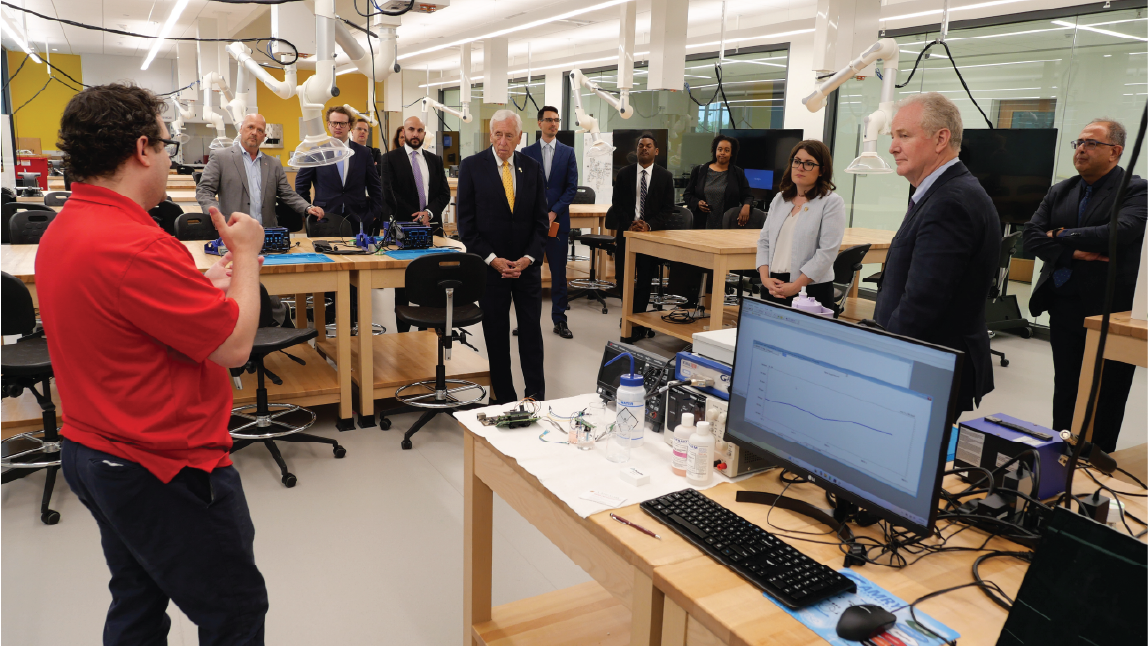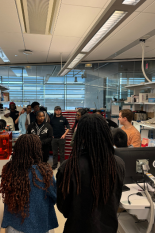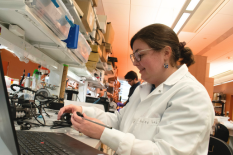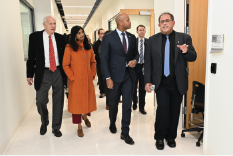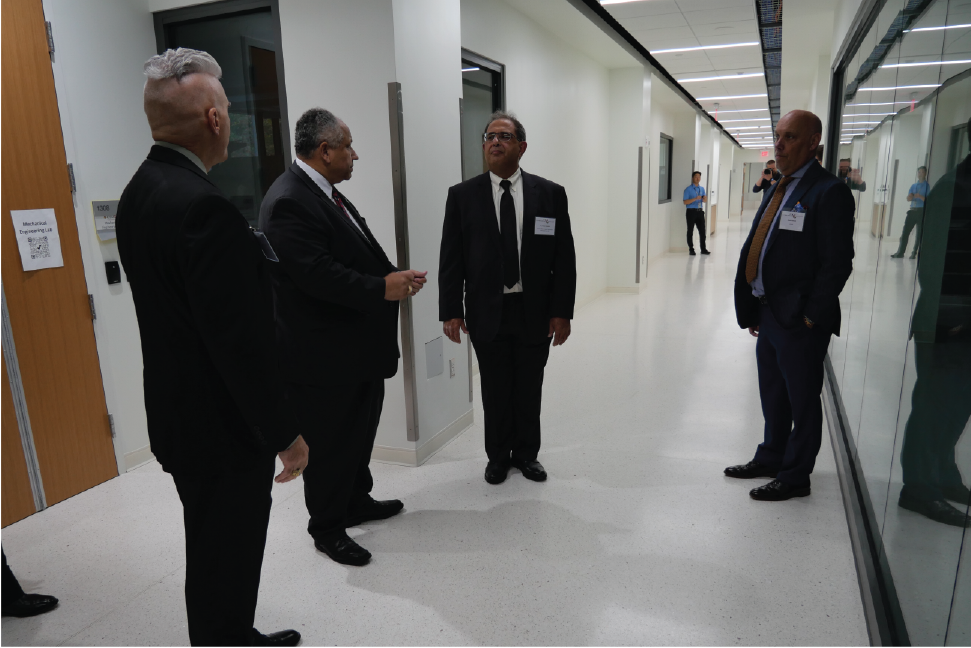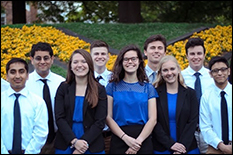Fischell Institute Hosts Maryland Department of Commerce Secretary
July 15, 2025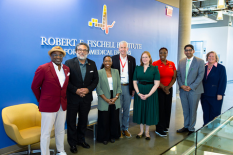
Maryland Department of Commerce Secretary Harry Coker, Jr. visited the Robert E. Fischell Institute for Biomedical Devices on Monday, July 7, as part of the Secretary’s inaugural tour of Prince George’s County, to learn how the institute supports innovation within the state, and to discuss ways the state can continue supporting research and commercialization.
”Maryland’s life sciences and biotech assets are unparalleled, and Maryland is committed to supporting this industry,” said Secretary Coker. “This visit acknowledges that the Fischell Institute team is not only doing critical work, but that their voices are being heard.”
The visit included an overview of the Fischell Institute led by William “Bill” Bentley, director of the Fischell Institute and the Maryland Technology Enterprise Institute (Mtech), highlighting the institute’s notable achievements and key collaborations, including co-hosting Maryland MedTech Week, a series of events bringing together key players in Maryland’s MedTech ecosystem, with the Maryland Department of Commerce.
A short presentation on Mtech followed, focusing on how the Maryland Industrial Partnerships (MIPS) program has boosted the state’s economy since its inception in 1987. In particular, MIPS projects have infused 41 times the investment provided by the state, in addition to $52.7 billion in revenue generated from MIPS-supported products over its 35-year history. He also expanded on how the Fischell Institute accelerates biomedical technologies while reflecting on its goal of advancing public good.
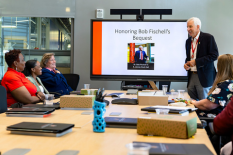
“Our mission is to turn innovative ideas into real-world solutions that improve lives,” said Bentley. “It’s incredibly encouraging to have strong support from our state leaders as we continue building Maryland into a hub for innovation.”
After the presentations, the group was offered a brief tour of the Fischell Foundry’s lab, where they were introduced to the team’s medical device prototypes, including an innovative, transparent N95 mask designed to filter at least 95 percent of particles while offering better provider-patient communication, and the KeyScope, a low-cost, handheld imaging device that supports safer surgeries in low- and middle-income countries.
Fischell Institute Senior Engineer Kevin Aroom, Chief Engineer John Rzasa, and Engineer Quinn Burke led the tour. The trio showcased the advanced fabrication tools used to develop and refine technologies they work on, offering explanations of what the tools are capable of and how they help develop medical device prototypes.
“I was glad to have the opportunity to meet with Secretary Coker and share some of our success stories from the Fischell Foundry,” said Aroom. “It is always important to communicate to our state leaders the role we play in accelerating the development of new ideas in the MedTech space.”
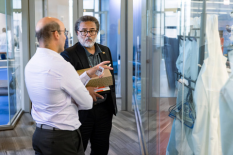
A delegation from the Maryland Department of Commerce, the Prince George’s County Economic Development Corporation (PGCEDC) and TEDCO joined Secretary Coker for the visit. Officials from Commerce included Deputy Secretary Stephen Rice, Assistant Secretary Mayank Kapur, Managing Director of Policy, Research and Government Affairs Jennifer LaHatte, and Delterese George, senior business development representative. The PGCEDC was represented by Ebony Stocks, interim president and CEO, and Alicia Moran, director of innovation and entrepreneurship. Troy LeMaile-Stovall, TEDCO’s CEO, rounded out the group.
Representatives from UMD included Bentley, Fischell Institute Assistant Director Martha Wang, Aroom, Rzasa, Burke, and Ronnie Gist, associate director of the MIPS program.
“One of the most important ways Maryland can strengthen its biotech industry is not just by driving innovation and research, but by helping commercialize new discoveries–getting the science from the laboratory to the marketplace, where it can fuel business growth,” Secretary Coker shared. “The institute has brought together experts in prototyping and manufacturing, intellectual property, and clinical trials and regulatory processes. They offer the expertise and guidance Maryland’s biotech innovators need for their businesses to grow and thrive.”


